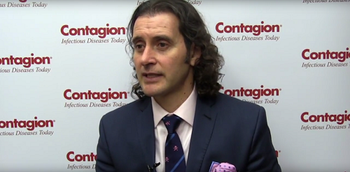
Gonzalo Bearman, MD, MPH, professor of medicine, and hospital epidemiologist, Department of Internal Medicine and Infectious Diseases, Virginia Commonwealth University, explains how controlling antibiotic use can impact Clostridium difficile rates.

Gonzalo Bearman, MD, MPH, professor of medicine, and hospital epidemiologist, Department of Internal Medicine and Infectious Diseases, Virginia Commonwealth University, explains how controlling antibiotic use can impact Clostridium difficile rates.
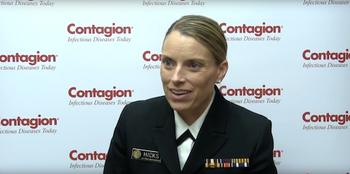
Lauri A. Hicks, DO, Director, Office of Antibiotic Stewardship, Centers for Disease Control and Prevention, discusses the importance of preserving the effectiveness of antibiotics.
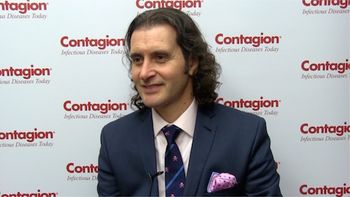
Gonzalo Bearman, MD, MPH, professor of medicine, and hospital epidemiologist, Department of Internal Medicine and Infectious Diseases, Virginia Commonwealth University, discusses methods to disinfect hospital rooms so as to limit the transmission of healthcare-associated infections.
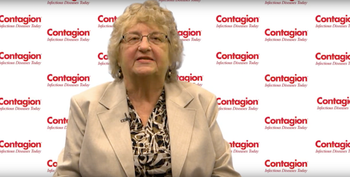
Patricia Smith, President of the Lyme disease Association, discusses the difficulty of diagnosing and treating Lyme disease.
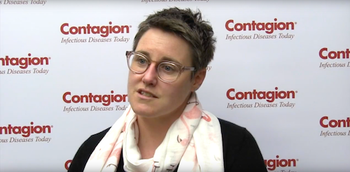
Nicola Thompson, PhD, Epidemiologist, Division of Healthcare Quality Promotion, Centers for Disease Control and Prevention (CDC), explains why research and surveillance of HAIs in US nursing homes has been limited.
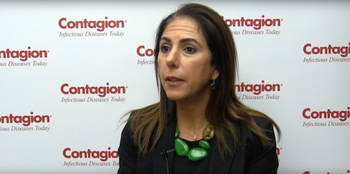
Lilian Abbo, MD, chief, infection prevention & control and antibiotic stewardship, Jackson Health System, associate professor of clinical medicine, Division of Infectious Diseases, Miller School of Medicine, University of Miami, explains how antibiotic stewardship efforts are different in the immunocompromised population.
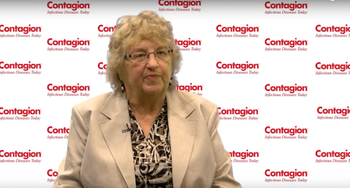
Patricia Smith, President of the Lyme disease Association, explains how Lyme disease has spread throughout the United States in the past decade.
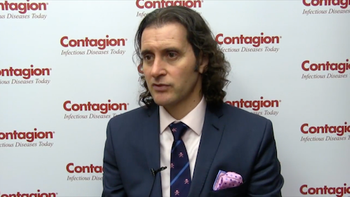
Gonzalo Bearman, MD, MPH, professor of medicine, and hospital epidemiologist, Department of Internal Medicine and Infectious Diseases, Virginia Commonwealth University, discusses a cost-effective way to control Clostridium difficile in the hospital setting.
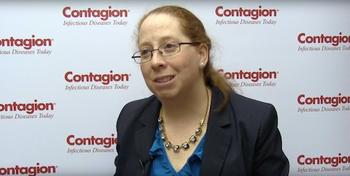
Belinda Ostrowsky, MD, MPH, Health Systems Director of Epidemiology, Antimicrobial Stewardship & Infection Prevention, Montefiore Medical Center, and Associate Professor of Clinical Medicine, Division of Infectious Diseases, Department of Medicine, Albert Einstein College of Medicine, explains how empiric treatment can lead to antibiotic overuse.
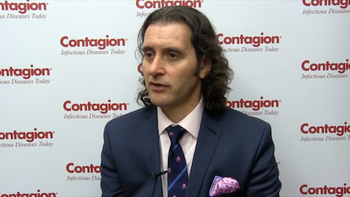
Gonzalo Bearman, MD, MPH, professor of medicine, and hospital epidemiologist, Department of Internal Medicine and Infectious Diseases, Virginia Commonwealth University, examines the importance of nurse-driven Clostridium difficile protocols.
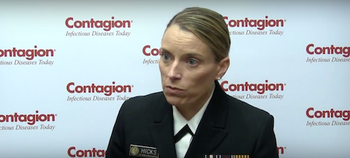
Lauri A. Hicks, DO, Director, Office of Antibiotic Stewardship, Centers for Disease Control and Prevention, discusses new resources dentists can use for prescribing antibiotics prophylactically.
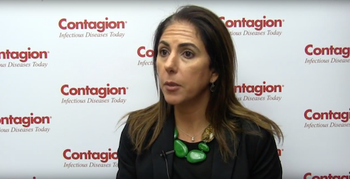
Lilian Abbo, MD, chief, infection prevention & control and antibiotic stewardship, Jackson Health System, associate professor of clinical medicine, Division of Infectious Diseases, Miller School of Medicine, University of Miami, discusses some of the limitations of rapid diagnostic testing.
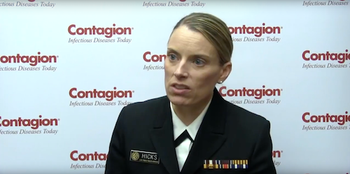
Lauri A. Hicks, DO, Director, Office of Antibiotic Stewardship, Centers for Disease Control and Prevention, discusses what we still don’t know about antibiotics.
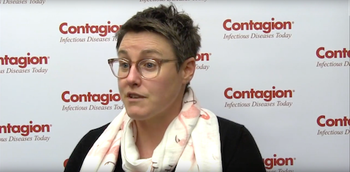
Nicola Thompson, PhD, Epidemiologist, Division of Healthcare Quality Promotion, Centers for Disease Control and Prevention (CDC), explains that, in order to decrease the national prevalence of HAIs in the United States, we can’t just focus on acute care settings.
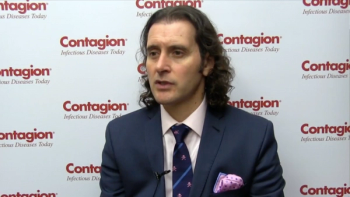
Gonzalo Bearman, MD, MPH, professor of medicine, and hospital epidemiologist, Department of Internal Medicine and Infectious Diseases, Virginia Commonwealth University, discusses some alternative approaches to contact precautions for patients with Clostridium difficile.
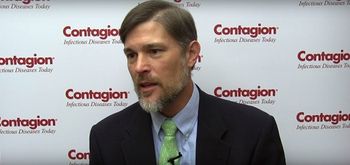
Matt Linam, MD, MS, Assistant Professor, Pediatric Infectious Diseases, University of Arkansas for Medical Sciences, stresses the importance of healthcare workers staying home when they’re ill.

Gonzalo Bearman, MD, MPH, professor of medicine, and hospital epidemiologist, Department of Internal Medicine and Infectious Diseases, Virginia Commonwealth University, explains how contact precautions can affect a patient’s wellbeing and quality of care.
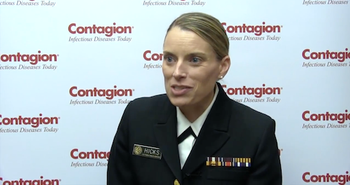
Lauri A. Hicks, DO, Director, Office of Antibiotic Stewardship, Centers for Disease Control and Prevention, explains the importance of identifying gaps in antibiotic stewardship.
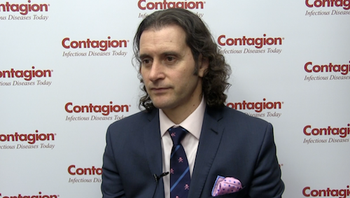
Gonzalo Bearman, MD, MPH, professor of medicine, and hospital epidemiologist, Department of Internal Medicine and Infectious Diseases, Virginia Commonwealth University, discusses contact precautions for patients with Clostridium difficile.
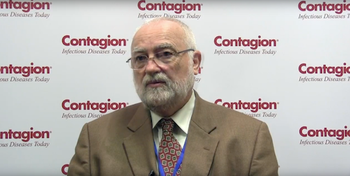
Jean-Paul Gonzalez, MD, PhD, Deputy Director, Center of Excellence for Emerging and Zoonotic Animal Diseases (CEEZAD), Kansas State University, Adjunct Professor, Kansas State University, discusses the parallels between past Ebola outbreaks, and how they can help us manage the current Zika pandemic.
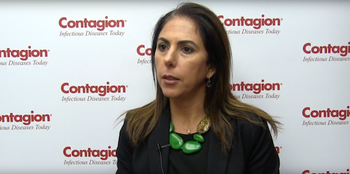
Lilian Abbo, MD, chief, infection prevention & control and antibiotic stewardship, Jackson Health System, associate professor of clinical medicine, Division of Infectious Diseases, Miller School of Medicine, University of Miami, explains why diagnostic tests may yield false positives.
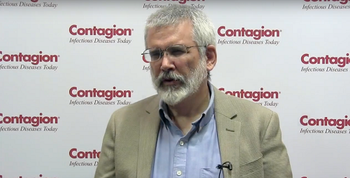
Robert Malone, MD, MS, CEO/CSO of Atheric Pharmaceuticals, LLC, discusses the benefits of repurposing drugs for emerging infectious diseases rather than going down the very long, costly road of developing new ones.
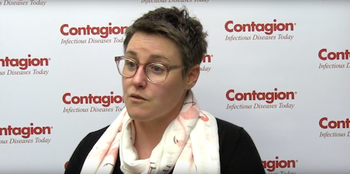
Nicola Thompson, PhD, Epidemiologist, Division of Healthcare Quality Promotion, Centers for Disease Control and Prevention (CDC), discusses the next step in implementing a prevalence survey to estimate national burden of HAIs in US nursing homes.
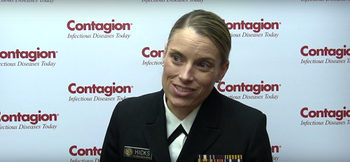
Lauri A. Hicks, Director, Office of Antibiotic Stewardship, Centers for Disease Control and Prevention, discusses how more data is needed to provide dentists with better guidelines for prescribing antibiotics.

The CDC offers insight into why a rare exception to the general recommendation of either brand of MenB vaccine had been made for the Rutgers outbreak in 2016.
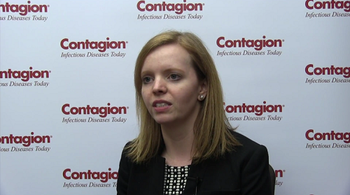
Emily Heil, PharmD, BCPS-AQ ID, assistant professor at the University of Maryland School of Pharmacy, explains why stewards should think outside of the box when coming up with interventions to include in an antimicrobial stewardship program.
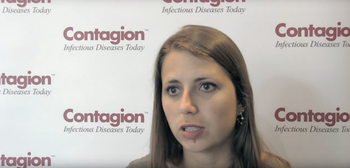
Madeline King, PharmD, assistant professor of Clinical Pharmacy at the University of the Sciences, Philadelphia College of Pharmacy in Philadelphia, Pennsylvania, explains how her future research aims to understand the effects of ceftazidime-avibactam in different patient populations.

Matt Linam, MD, MS, Assistant Professor, Pediatric Infectious Diseases, University of Arkansas for Medical Sciences, explains the impact of respiratory viral infections in children.

Lauri A. Hicks, DO, Director, Office of Antibiotic Stewardship, Centers for Disease Control and Prevention, discusses the potential consequences of prescribing unneeded antibiotics.

Belinda Ostrowsky, MD, MPH, Health Systems Director of Epidemiology, Antimicrobial Stewardship & Infection Prevention, Montefiore Medical Center, and Associate Professor of Clinical Medicine, Division of Infectious Diseases, Department of Medicine, Albert Einstein College of Medicine, discusses five stewardship strategies to help reduce healthcare-associated Clostridium difficile rates.